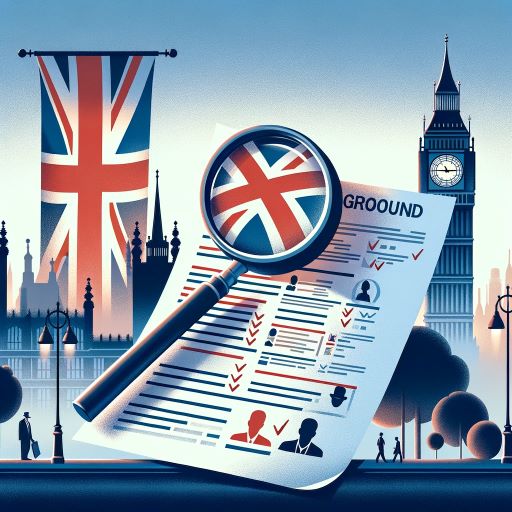

• Risks of corporate spying
• Threats of terrorism and organized crime
What entails preemployment screening? Companies yet to establish a formal screening protocol may wonder about the specifics of a preemployment screening process.
Essentially, it involves a systematic approach to ensure that a business has conducted all necessary due diligence regarding candidate compliance. This includes implementing procedures and, when needed, incorporating checks by external parties. The specifics of the screening process can vary widely across organizations, influenced by the industry and the particular demands of the job role.
Though the specifics of preemployment screenings can differ from one company to another, certain universal aspects always apply. Key screening questions to ask include:
1. Do you have any concerns about us conducting background checks, including criminal record verifications?
In the UK, the duration of pre-employment screening checks can vary significantly depending on the type and depth of the checks being conducted, as well as the industry and specific job role requirements. Generally, basic checks, such as identity verification and employment history, can be completed within a few days to a week. More comprehensive checks, including criminal record checks (DBS checks), credit history, and higher-level security clearances, may take longer.
An employee background check can encompass a wide range of verifications and screenings to assess a candidate's history and suitability for a position. The specific elements included in a background check may vary depending on the job, the industry, and the employer's requirements. Common components of an employee background check include:
Identity Verification: Confirms the candidate's identity through government-issued documents like passports or driver's licenses.
Employment History Verification: Checks the candidate's previous employment, including positions held, dates of employment, reasons for leaving, and rehire eligibility.
Education Verification: Confirms the candidate's educational degrees, diplomas, and certificates from colleges, universities, and other educational institutions.
Criminal Record Check: Searches for any criminal convictions, cautions, reprimands, or warnings. In some countries, this is known as a Disclosure and Barring Service (DBS) check in the UK or a criminal background check in the US.
Credit History Check: Reviews the candidate's credit history, which can be relevant for positions involving financial responsibilities. This check typically includes looking at credit scores, outstanding debts, bankruptcies, and financial mismanagement.
Reference Checks: Involves contacting previous employers, colleagues, or academic references to gain insights into the candidate's work ethic, abilities, and behavior.
2. Will the employment history on your resume or profile be consistent with the information provided by your previous employers?
3. Can you explain any gaps in your employment history?
When thinking about background checks in the UK, consider Basic, Standard, Enhanced, and Enhanced DBS with Barred Lists checks. They differ in the level of detail, from revealing unspent convictions in Basic to providing detailed information in Enhanced checks. Depending on the job role and level of access required, various checks offer different layers of scrutiny. Understanding these distinctions is key for informed decisionmaking in organizational environments. For deeper insights into the specifics of each type and their implications, explore the nuances of each background check level.

Introducing the importance of conducting DBS checks in the UK for roles involving children, vulnerable adults, or sensitive information is essential for ensuring safety and security. These checks, introduced by the British Government in 2002, are a crucial tool for safeguarding individuals in various settings.
DBS checks offer different levels of disclosure, including Basic, Standard, and Enhanced checks. Basic checks reveal unspent convictions, while Enhanced checks provide the most thorough information, including spent convictions and any relevant police information. Employers heavily rely on these checks to make informed decisions about candidates and to create a secure environment for both their workforce and clients.
Understanding the different levels of DBS checks available is key, as it allows employers to request the appropriate level of disclosure based on the specific requirements of the role. By conducting these checks, employers can mitigate risks and promote a safer working environment for everyone involved.
When considering background checks in the UK, the Basic DBS Check serves as the most fundamental level of criminal record verification, revealing unspent convictions and conditional cautions. This basic check is the most straightforward option available, providing a summary of an individual's criminal history.
Employers often request Basic DBS Checks for positions that don't involve working with vulnerable populations or sensitive information, where a higher level of disclosure is unnecessary. The process is simple and costeffective, with the Basic DBS Check costing £23 and being easily applied for online.
While it may not investigate as much detail as higherlevel checks, the Basic DBS Check remains a valuable tool for employers seeking a quick overview of an individual's criminal background. It offers a streamlined approach to screening applicants, ensuring a level of security in the hiring process without unnecessary complexity.

The Standard DBS Check in the UK provides a detailed overview of an individual's criminal record, including both spent and unspent convictions, cautions, reprimands, and final warnings. This level of check offers detailed information important for specific roles, especially those involving vulnerable groups or sensitive data.
Employers commonly request Standard DBS Checks to assess the suitability of candidates for such positions. By revealing past criminal history, this check is essential for ensuring workplace safety and security. It enables employers to make informed decisions regarding potential employees, safeguarding both the organization and those it serves.
Whether you're applying for a role that involves working with vulnerable individuals or handling confidential information, a Standard DBS Check plays an essential role in the hiring process. Make sure to comply with the necessary checks to demonstrate your commitment to a safe and secure working environment.
An Enhanced DBS Check in the UK offers the most essential background information required for specific roles, including additional local police details relevant to the position. This detailed check goes beyond the Standard Check, encompassing all the standard disclosure elements and adding pertinent information from local law enforcement databases.
Mandatory for positions working with vulnerable groups such as children or in sensitive settings, the Enhanced DBS Check ensures a thorough vetting process. It may reveal any interactions with the criminal justice system, providing employers with a more detailed overview of an individual's background.
For the most thorough background check in the UK, opt for the Enhanced DBS with barred lists. This exhaustive screening includes barred list status, revealing spent and unspent convictions, cautions, reprimands, final warnings, and additional local police information.
